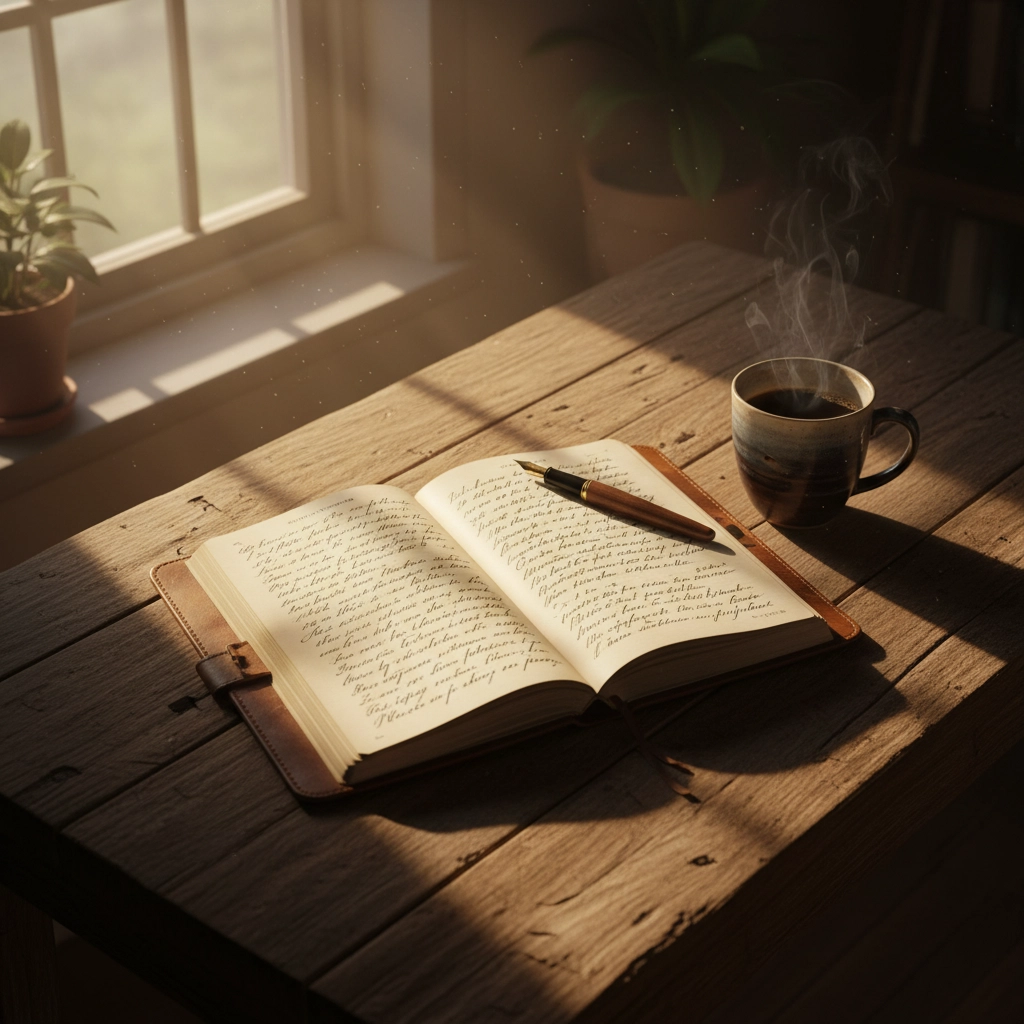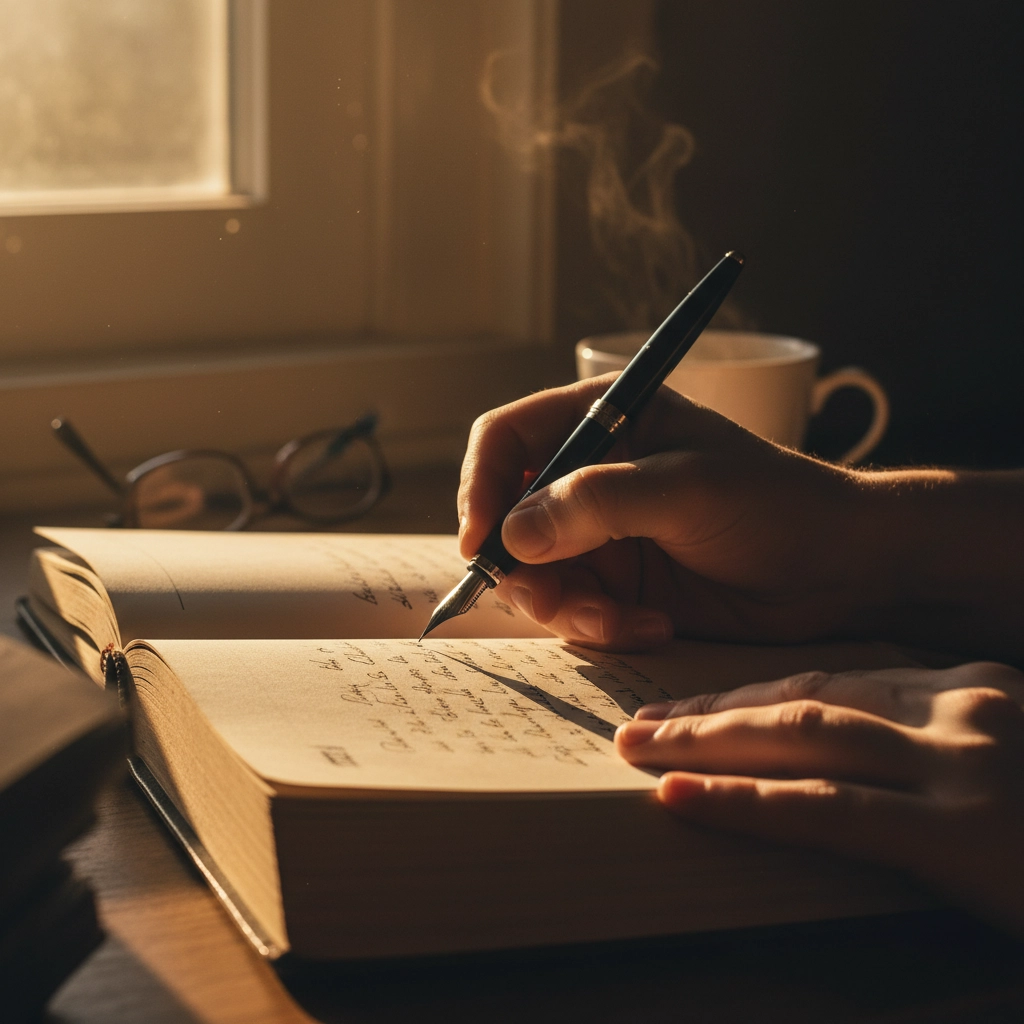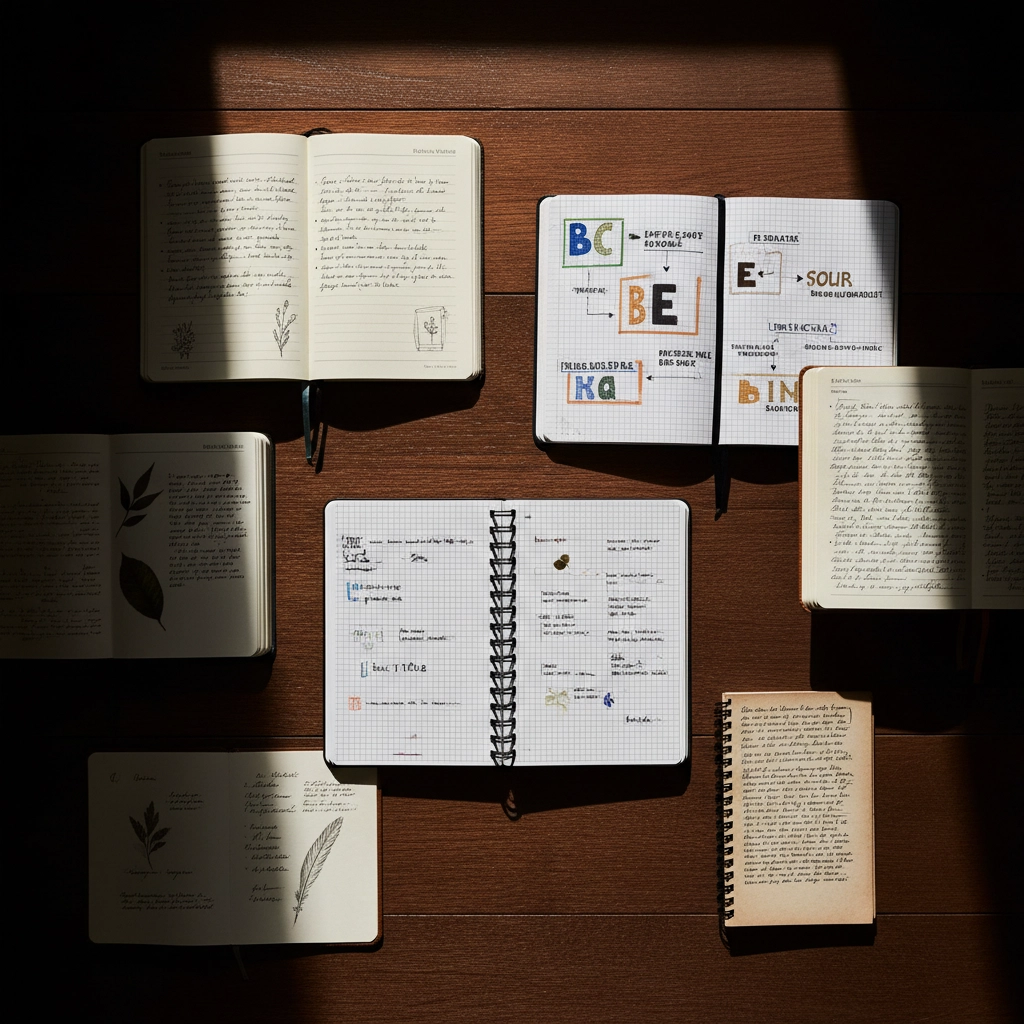There's something magical about the quiet moments when you're sitting with a warm cup of coffee, pen in hand, ready to pour your thoughts onto paper. In our fast-paced world, these moments of reflection have become more precious than ever. Journaling isn't just about recording what happened in your day – it's a powerful tool for self-discovery, emotional processing, and personal growth that can transform how you understand yourself and navigate life's challenges.
Whether you're sipping a rich Whiskey Barrel Aged coffee during your morning reflection or enjoying an evening wind-down ritual, the combination of caffeine clarity and written reflection creates the perfect environment for meaningful personal insights.
The Science Behind Reflective Writing

Journaling does more than just capture memories – it actually rewires your brain for better emotional regulation and clearer thinking. When you write about your experiences, you're engaging both the logical and creative parts of your brain, creating new neural pathways that help you process emotions more effectively.
Research shows that regular journaling can reduce stress, improve immune function, and even help you sleep better. The act of putting pen to paper (or fingers to keyboard) forces you to slow down and really examine your thoughts and feelings, rather than letting them swirl around unchecked in your mind.
Think about it: how many times have you felt overwhelmed by a situation, only to find clarity after talking it through with a friend? Journaling provides that same release and perspective, except the conversation is with yourself. You become both the storyteller and the compassionate listener, creating space for honest self-reflection without judgment.
Creating Your Perfect Journaling Ritual
The beauty of journaling lies in its flexibility – there's no "wrong" way to do it. However, creating a consistent ritual can make the practice more meaningful and easier to maintain. Many people find that pairing journaling with their coffee routine creates a natural anchor for the habit.
Consider starting your day with a robust Cowboy Blend coffee and five minutes of morning pages – a stream-of-consciousness writing practice that helps clear mental clutter and set intentions for the day. The bold, earthy flavors can energize your mind while you process thoughts and plan ahead.

Your journaling space matters too. Find a spot that feels comfortable and inspiring – maybe it's your kitchen table bathed in morning sunlight, a cozy corner with your favorite reading chair, or even a quiet café where the gentle buzz of activity provides a soothing backdrop. The key is consistency; when your brain associates a particular space and time with reflection, it becomes easier to slip into that contemplative mindset.
Don't worry about perfect prose or profound insights every time. Sometimes your entries might be simple gratitude lists, and other times they could be deep dives into complex emotions or challenging decisions. Both have value in your growth journey.
Types of Journaling for Different Needs
Morning Pages for Mental Clarity
Start your day by writing three pages of whatever comes to mind. This brain dump technique, popularized by Julia Cameron, helps clear mental fog and anxiety, making room for creativity and focus. Pair this practice with a warming Pumpkin Spice coffee during fall months for an extra dose of comfort and mindfulness.
Gratitude Journaling for Perspective
Regularly recording what you're grateful for shifts your focus from what's lacking to what's abundant in your life. Even on difficult days, finding three small things to appreciate can dramatically improve your mood and overall life satisfaction.

Problem-Solving Sessions
When facing a challenge, use your journal as a thinking space. Write out the situation, explore different angles, brainstorm possible solutions, and examine potential outcomes. This structured approach often reveals solutions that weren't obvious when the problem was just spinning in your head.
Emotional Processing
Use your journal as a safe space to work through difficult emotions. Writing about painful experiences can help you process them more effectively than rumination alone. The key is to not just describe what happened, but to explore how it made you feel and what it might teach you about yourself or your needs.
Future Self Visualization
Regular check-ins with your goals and dreams keep you aligned with what truly matters to you. Write letters to your future self, describe your ideal day in vivid detail, or explore what success looks like in different areas of your life.
Getting Started: Your First Steps

Beginning a journaling practice doesn't require expensive supplies or perfect conditions. Start simple: a basic notebook and any pen that feels good in your hand will do. The important thing is to begin.
Set realistic expectations. Committing to write for just five minutes a day is more sustainable than promising yourself an hour of deep reflection that you'll struggle to maintain. As the habit becomes natural, you can expand the time if you want to.
If you're not sure what to write about, try these starter prompts:
- What am I feeling right now, and why might that be?
- What went well today, and what could have gone better?
- What am I learning about myself lately?
- What do I need more of in my life? What do I need less of?
- How do I want to show up in the world today?
Remember that your journal is for your eyes only. Give yourself permission to be completely honest, even if those thoughts feel messy or contradictory. Growth happens in the gray areas, not in perfect, polished insights.
Making It Stick: Building a Sustainable Practice
The key to maintaining a journaling habit is flexibility and self-compassion. Life will inevitably interrupt your routine – travel, illness, busy periods at work – and that's okay. The practice isn't about perfection; it's about returning to reflection whenever you can.

Consider keeping a small notebook with you for quick thoughts throughout the day, or using voice memos on your phone that you can transcribe later during your coffee ritual. Some people find that Sunday evening reflection sessions work better than daily writing, while others prefer quick morning check-ins.
Experiment with different approaches and pay attention to what feels sustainable for your lifestyle. Maybe you're someone who thrives on routine and wants to journal at the same time every day, or perhaps you prefer a more intuitive approach, writing when you feel called to process something.
The Ripple Effects of Regular Reflection
As you develop a consistent journaling practice, you'll likely notice changes beyond just feeling more organized or emotionally balanced. Many people find they become better communicators, more empathetic listeners, and clearer decision-makers. The self-awareness developed through regular reflection naturally improves how you interact with others and navigate challenging situations.
You might also discover patterns in your thoughts and behaviors that you hadn't noticed before – perhaps you're more productive at certain times of day, or certain situations consistently trigger anxiety. These insights become powerful tools for making positive changes in your life.
The art of reflection through journaling is ultimately about becoming your own best friend and wisest counselor. In a world that often encourages us to look outside ourselves for answers and validation, journaling brings us back home to our own inner wisdom. Combined with the simple pleasure of a perfectly brewed cup of coffee, it creates a daily ritual of self-care that nourishes both mind and soul.
Start small, be patient with yourself, and remember that every word you write is an investment in your own growth and well-being. Your future self will thank you for taking the time to listen, reflect, and grow through the beautiful art of journaling.




